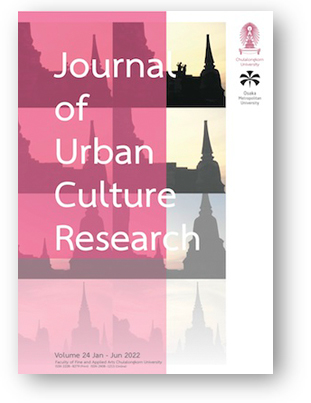Mobility Revisited: The Illusion in Bangkok & Tokyo Transportation – A Comparative Analysis
DOI:
https://doi.org/10.14456/jucr.2022.15Keywords:
Margin of Indeterminacy, Govermobility, Production of Space, Mobility, Public TransportationAbstract
This paper argues against the traditional notion of mobility by reinterpreting it through three concepts: Margin of Indeterminacy, Governmobility and Lefebvre’s Production of Space. The author chooses to compare the transportation of Bangkok and Tokyo based on direct experience and the city transportation’s respective notability. The paratransportation and decentralized transportation in Bangkok allows the city to have a wider margin of indeterminacy than Tokyo. By that, people in Bangkok has other alternatives when a major transportation has an issue. Tokyo depends primary on its railway. Foucauldian governmentality argued that mobility is another way where the government governs over the people. Governmobility is a new form of authority through connections and the power to control mobility. While Tokyo has a rigid predesignated path for ones commute, Bangkok does not, implying a different level of bio-power. Hence, it is argued that Bangkok’s mobility actually possesses more freedom than Tokyo’s.
Downloads
Published
How to Cite
Issue
Section
License

This work is licensed under a Creative Commons Attribution-NonCommercial-NoDerivatives 4.0 International License.
Authors authorize the JUCR to publish their materials both in print and online while retaining their full individual copyright. The copyright of JUCR volumes is retained by Chulalongkorn University.
The views and opinions expressed herein are those of the individual author(s) and do not necessarily reflect the policies or opinions of the Journal (JUCR), it editors and staff, Chulalongkorn University, or Osaka Metropolitan University.








